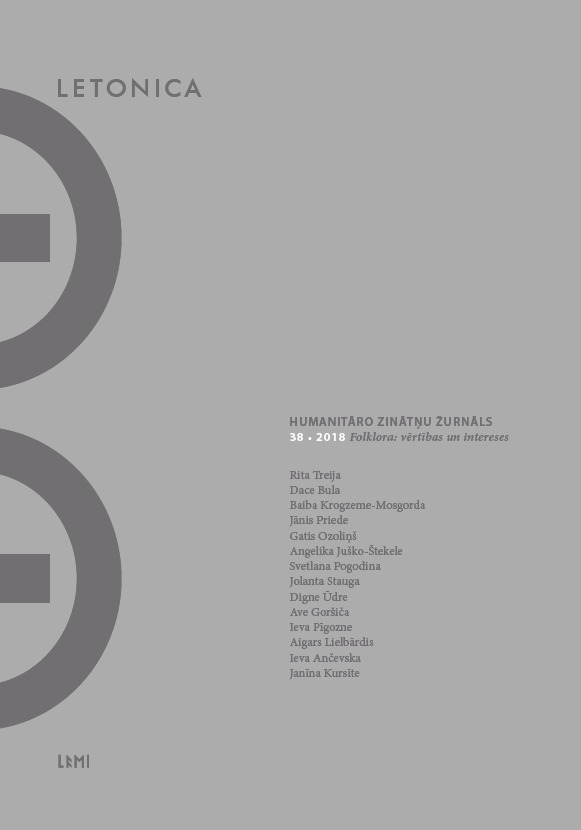Tautas rokraksti kā kultūras vērtība
Vernacular Writings as a Cultural Value
Author(s): Baiba Krogzeme-MosgordaSubject(s): History, Literary Texts, Cultural history, Museology & Heritage Studies, Customs / Folklore
Published by: Latvijas Universitātes Literatūras, folkloras un mākslas institūts
Keywords: vernacular writings; writing skills; privacy; autograph albums; song books; diaries;
Summary/Abstract: The article is dedicated to vernacular writings as a form of traditional culture. Its source of inspiration is the research of the writings of ordinary people in Europe, carried out by the cultural historian Martyn Lyons. The aim of the article is to suggest vernacular writings as the valuable source for the studies of the 20th century culture in Latvia. Attention has been drawn to the concept and genres of vernacular writings, their borders with the handwritten literature and oral folklore, as well as the future perspectives of their research. Vernacular writings (tautas rokraksti) is a new term in the Latvian culture research. It is based on the concepts used in European cultural studies (besides vernacular writings also écritures ordinaires and ego-documents) to refer to individual writings popular in the lower and middle classes of European society. From a folklorist perspective vernacular writings is a handy umbrella term that covers all popular manuscripts of traditional form, which so far have been analysed both as folklore and handwritten literature, or have not been noticed at all due to the assumption that it is a too recent phenomenon related to mass culture. In Latvia, similarly to elsewhere in Europe, writing culture became a part of every day life in the second half of the 19th century along with the modernisation of society and general access to education and continued up to the beginning of the digital era in the 1990’s. Vernacular writings not only took over several functions from the oral culture implemented in the previous centuries, but also offered new opportunities for social communication and individual creativity. It particularly refers to the so-called artistic genres – autograph albums, song books, diaries, etc. The diversity and eclectics of genres in vernacular writings encourage to focus attention to the personality of the author rather than to the specifics of separate genres. The analysis of manuscripts created by one person not only provides an opportunity to approach the personality of the author, but also helps to understand the role of these manuscripts in the creation of his personal social networks. Thus, with the help of individual case studies of vernacular writings, it is possible to examine the social and cultural history of Latvia – the family structure and hierarchies, the school culture, the everyday life and festive traditions in rural and urban environments, the professional networks and models of private relationship, the personal experiences of historical and political events, the cultural expressions of personal and gender identities, the habits of culture consumption, the manifestations of individual and collective creativity etc., opening up new channels of information for research in humanities and social sciences.
Journal: Letonica
- Issue Year: 2018
- Issue No: 38
- Page Range: 45-57
- Page Count: 13
- Language: Latvian

